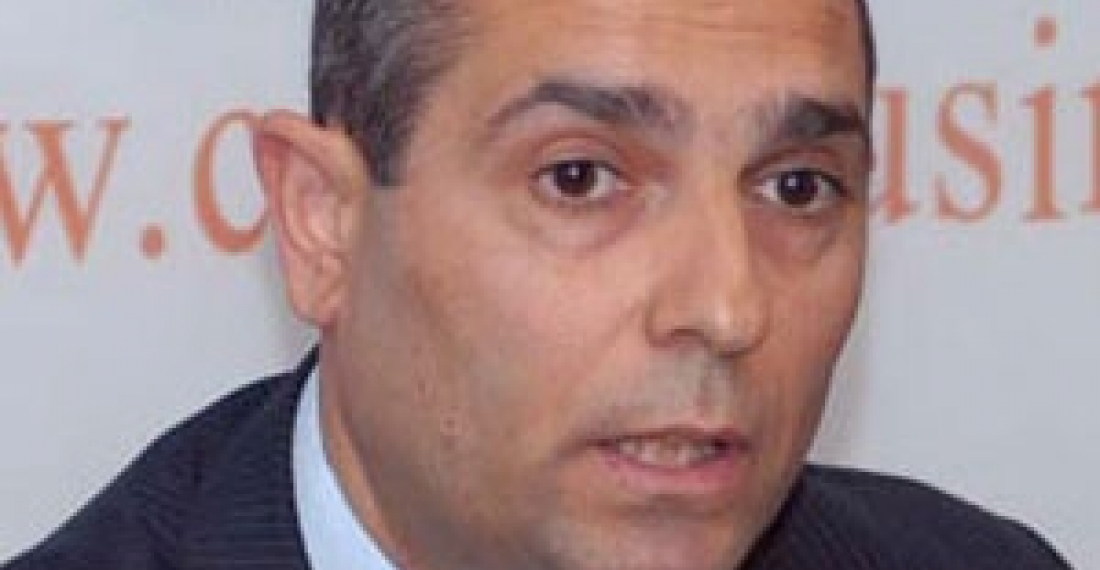Interview of Masis Mailyan, Head of the NKR Public Council for Foreign Policy and Security, with ArmInfo News Agency
On August 6, 2012, the House of Representatives of the State of Massachusetts adopted a resolution submitted by State Representative Jonathan Hecht urging "the President and Congress of the USA to support the self-determination and democratic independence of Nagorno- Karabakh". Do you think this step may become a precedent and what are the prospects of this process?
As early as on May 17, 2012, the Rhode Island House of Representatives also adopted a resolution calling on the U.S. President and Congress to recognize the independence of the Nagorno-Karabakh Republic. This resolution became a precedent for adoption of a similar resolution by the Massachusetts House of Representatives. This process is of great importance to the Karabakh residents and should be continued. I'd like to recall that on April 26, 2010, the Public Council for Foreign Policy and Security of Artsakh applied to the Armenian Diaspora organizations to initiate the process of international recognition of the Nagorno-Karabakh Republic. We think the recognition of Artsakh, even by the regional structures and self-government bodies of certain countries will encourage our compatriots in Artsakh, give them more firmness and will be serious moral and institutional support for them. In addition, the process of recognition of the NKR will contribute to softening of Azerbaijan's positions in the talks.
Several months ago Foreign Minister of Uruguay Luis Almagro said that his country was considering possible recognition of independence of the Nagorno-Karabakh Republic. Afterwards the Azeri Foreign Minister made a trip to the countries of Latin America to continue "conquering" these countries to create a counterweight to the Armenian communities. What steps should the Armenian republics and communities take to create a counterweight to "Aliyev's oil" and petrodollars?
I think that morality and law are stronger categories than oil and petrodollars. Therefore, the diplomacy of the Armenian states and the Armenian lobbying structures should continue their work in the countries of Latin America. In early December 2010 the large states of Latin America responded to the Palestinian leader's request and declared recognition of Palestine's independence. The actions of the countries of Latin America could not be considered a precedent, as Palestine had been recognized as a state by dozens of countries before. It is noteworthy that the countries of Latin America with strong Armenian Diaspora seek to expand their role in international affairs and support one of the parties to the protracted Middle East conflict. The fact that some states of Latin America are conducting an independent policy opens new prospects for us.
On August 8 Russian Deputy Foreign Minister Grigory Karasin said that Russia sets a high value on the relations with both Yerevan and Baku, which are Russia's partners in the CIS, and that Russia does everything possible to narrow the gap between the two sides' positions in the Karabakh peace process. How would you assess the prospects of the peace process given the presidential elections in Armenia and Azerbaijan in 2013?
As expected, the Karabakh peace process has paled into insignificance. The formal explanation of that is the two-year electoral period in the three co-chair countries of the OSCE Minsk Group and in the conflicting parties - Karabakh, Armenia and Azerbaijan. The real reason is not the elections, but a number of other factors, for instance, the reluctance to change the current status quo, which has tough internal and external parameters, the obsolete approaches, the distorted negotiation format and other important factors.
The NKR Prime Minister Ara Haroutyunyan has recently expressed the NKR's willingness to put up the Armenians of Syria, provide them with living conditions, and give them an opportunity to receive free education in Artsakh. Afterwards, the Foreign Ministry of Azerbaijan announced that the migration of Syrian Armenians to Karabakh was illegal. Do you think the settlement of the liberated lands of Artsakh with our compatriots may stimulate implementation of a global project on settlement of Karabakh?
As the second Armenian state, Artsakh is also morally responsible for their compatriots in need. The Nagorno-Karabakh authorities have an opportunity to put up the Armenians from Syria, and it has been declared. There are citizens in Artsakh, who are ready to provide the Armenians from Syria with part of their housing. Such solidarity is also very important and displays true patriotism. In case the work is arranged correctly and the wishes of our compatriots are taken into consideration, it is possible to solve both the problem of ensuring the safety of the population evacuated from Syria and the problem of proportional development of all the territories of Karabakh. We have all the sound reasons for that.
Were the recent presidential elections in Artsakh one more step towards establishment of democracy in the republic?
Due to the nomination of Vitaly Balasanyan's candidacy for president, the elections were alternative. The big number of votes obtained by Balasanyan became a serious basis for the beginning of new democratic processes in the NKR. A new political structure is being created. As known, the NKR had lacked opposition since May 2007, and the political field was unipolar. It is important that the NKR citizens once again expressed their preferences, and the media reports on the passivity of our society fell short.
By David Stepanyan
20 August 2012, ArmInfo







